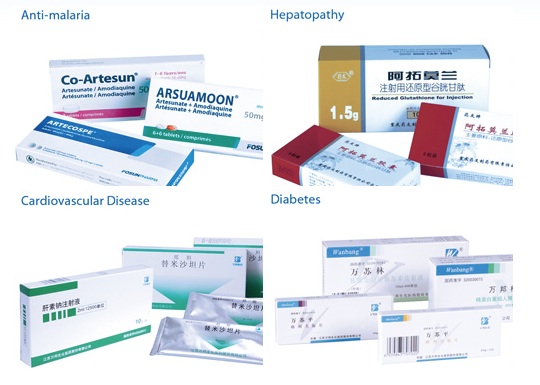Shanghai Fosun Pharmaceutical has secured a green light from both the China Securities Regulatory Commission and the authorities in Hong Kong for its long-awaited initial public offering on HKEx, which means that launch could start soon.
The firm is said to be looking to raise up to US$800 million-equivalent – less than an originally mulled US$1 billion, but still a considerable amount of stock to be sold to investors.
Fosun Pharma makes traditional Chinese and allopathic medicine, diagnostic equipment and medical instruments. It already trades on the Shanghai stock exchange.
The deal exhibits a number of positives, but some investors could ultimately baulk at valuation.

On the one hand, the pharmaceuticals sector is widely under-represented in Hong Kong (and for that matter in Asia, ex-Japan). This listing would provide some refreshing diversification in a market dominated by property and financial plays, and – increasingly – by consumer and mining stories.
On the other hand, there’s the small matter of valuation. The Shanghai shares trade at a price/earnings ratio of about 12.8 times the company’s expected 2012 profits. Local and international investors would not find that ratio challenging.
But on the basis of enterprise value – or EV, that is, equity plus net debt – divided by earnings before interest, tax, depreciation and amortisation (or ebitda) – effectively cash flow, however, Fosun Pharmaceutical doesn’t look cheap at more than 39 times.
The reasons: chunky operating expenses and about half of the company’s net income that’s generated through minority investments in almost a dozen of other pharmaceutical companies. So it’s a bit unclear what exactly constitutes Fosun Pharma’s core business.
And while that proportion has been declining in recent years, this could get investors scratching their heads about which metric to actually consider, when it comes to deciding on a fair value of the stock.
But this is all likely moot. Pricing will ultimately be benchmarked off the mainland shares, and likely using a very specific formula: a discount to Fosun’s weighted average share price on the Shanghai exchange in the 20 days prior to IPO pricing in Hong Kong. That was the case with the recent listing of Haitong Securities and, late last year, of Citic Securities.
How much of the deal is placed with cornerstone investors, as well as the names of these accounts and their individual order sizes, will provide an important indication of how it could fare in aftermarket. Hong Kong investors should in particular look out for sovereign wealth funds and tycoons endorsing the offer.
And how soon the lead banks are able to announce that the IPO is fully covered, for example through additional orders by (normally unnamed) anchor investors, on top of the cornerstone accounts, will also give a clue to market participants as to whether this is a hot deal worth pursuing.
The timing of the offer will, to some extent, be influenced by Haitong’s share price performance. Its lacklustre debut doesn’t necessarily augur well for the long list of IPO hopefuls in Hong Kong.
Accounting considerations will also increasingly weigh on the timetable – as is the case for any IPO. The accounts of Fosun Pharmaceutical (which has a December year-end for reporting purposes) will need to be updated if the prospectus is published after the end of June, putting further pressure on the banks and management (and on the auditors too) to try to launch a deal as soon as possible, market conditions permitting.
But then, Fosun should already know everything about curing headaches.
Philippe Espinasse, a former investment banker, is the author of “IPO: A Global Guide” (HKU Press).
[This article was originally published in The South China Morning Post on 30 April 2012 and is reproduced with permission.]
(c) 2012 South China Morning Post Publishers Limited, Hong Kong. All rights reserved.
